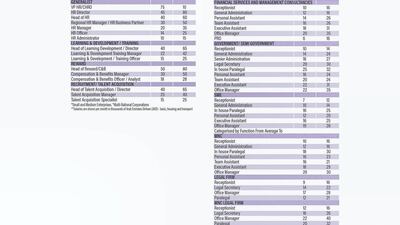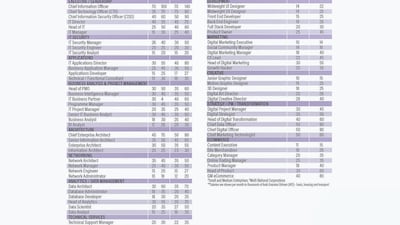Salaries will not increase to offset January’s introduction of value added tax (VAT) in the UAE, according to recruitment firms.
Yet with housing and education not affected by the hike, experts predicted an average cost of living rise of about 1.5 per cent.
Some goods and services in the UAE, and later wider GCC, will have a 5 per cent VAT added from January 1.
Martin McGuigan, partner at Aon Hewitt Middle East, agreed that professional companies were taking a “wait and see” approach - reacting rather than pre-empting.
“VAT isn’t going to impact salaries as much as people would like to think it would,” he said.
Typically in more mature economies, the rule of thumb is to look at inflation figures and to adjust salaries accordingly. An emerging market, such as the UAE, has inflation changes more often, so it isn’t the gauge in which employers look to in order to determine pay.
What is taken into account is survey data, which always lags behind the market since it usually begins the collecting phase in May and released later the year.
“So VAT’s impact won’t show up in a survey until October 2019, and then people will react,” he said.
Mr McGuigan said that his team surveyed companies to see what they were looking at in terms of salary increases, and it was closer to 1-2 per cent at most, rather than a 6-8 per cent raise.
He added: “What employees are failing to take account of is that your biggest, costs such as housing, will not be VAT applicable."
A resident’s overall household expenditure - at least the majority of items - won’t attract an extra charge so there will not be an inflationary impact, Mr McGuigan said. “Out of the 5 per cent tax, the uplift on the cost of living will be 1.5 to 1.75 per cent more."
However, the 5 per cent VAT will be added on some food items, water and electricity and some consumers may feel a squeeze given economic growth has been slow for the past two years in the wake of low oil prices.
Mr McGuigan said that mobility within the job market had improved this year, despite a dip in salaries.
“The bonus last year wasn’t cash, but rather keeping their job,” he said adding that it is expected to pick up even more over the next two years.
Though there is one job that has been impacted by VAT: tax specialists.
“There is greater demand for tax and VAT specialists in the region, and that’s far outstripped the available demand globally - particularly for Arab speakers,” said Trefor Murphy, chief executive of Cooper Fitch.
He added that the VAT regulation had been a boost for the tax sector for the last 12 months and would probably carry over through most of next year.
__________________
Read more:
VAT in UAE: a guide to what will be taxed, exempt or zero-rated
Never assume a question about VAT is silly
VAT in UAE: Water and electricity bills to be subject to 5%
__________________
Yet that doesn’t translate across the board. The mid-senior level recruiter expected salaries to increase by 4 per cent only to revise that figure halfway through the year to 2 per cent. And now the firm’s view is that salaries will remain flat this year.
However, companies are focused on the immediate step rather than later down the road. “No one has looked at VAT impact on salaries,” said Leith Ramsay, managing director of recruitment firm PageGroup Middle East.
“All companies are getting themselves registered and ready for VAT, but are waiting for [legislation clarity] to properly understand how it impacts their sector.”
The rising cost of living, particularly for those with children at top performing schools that see significant annual fee hikes, is a common complaint.
However, Mr Ramsay added: “Everyone is still better off being here when they sit down and work out earnings and savings versus other countries.”








